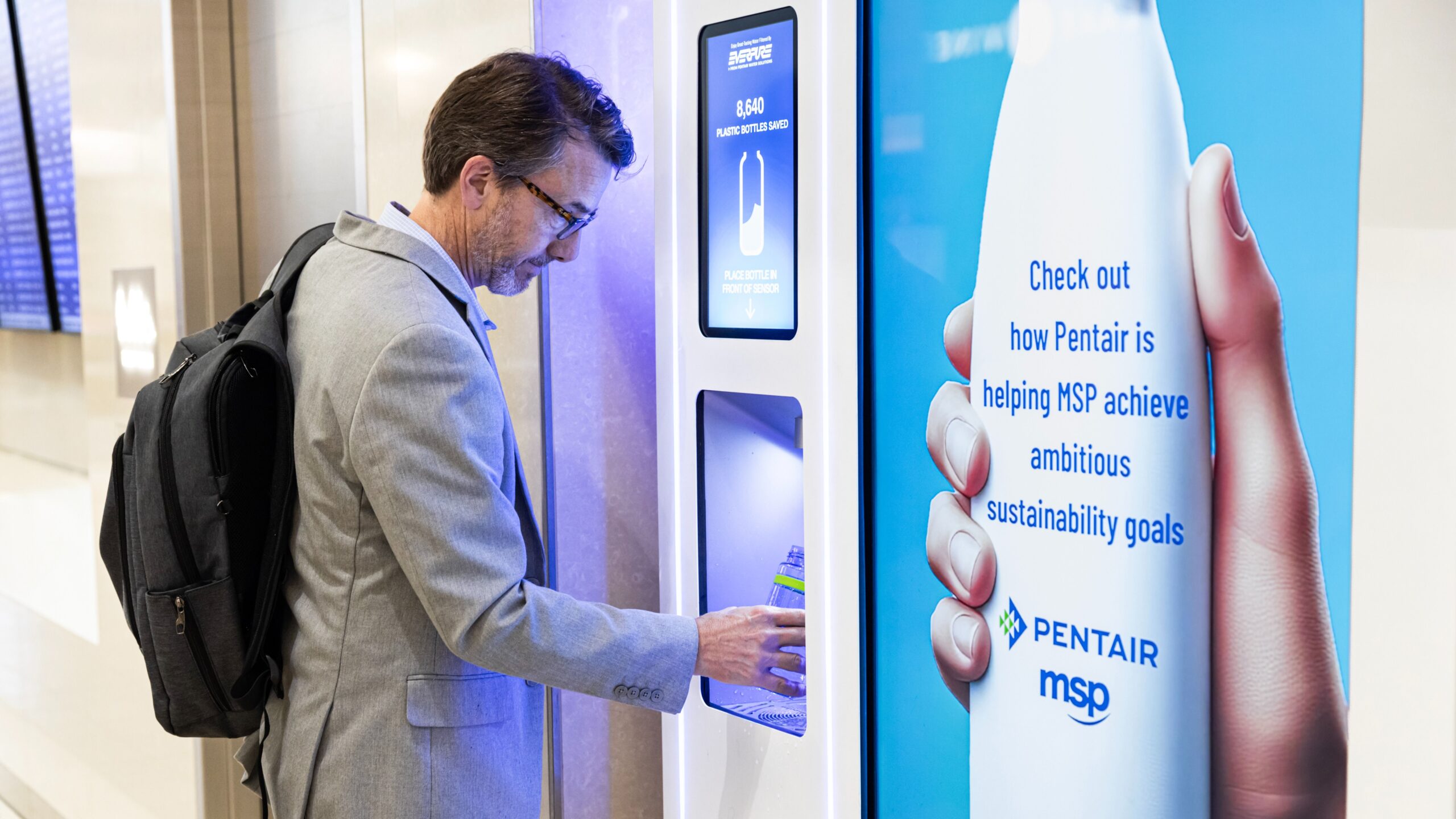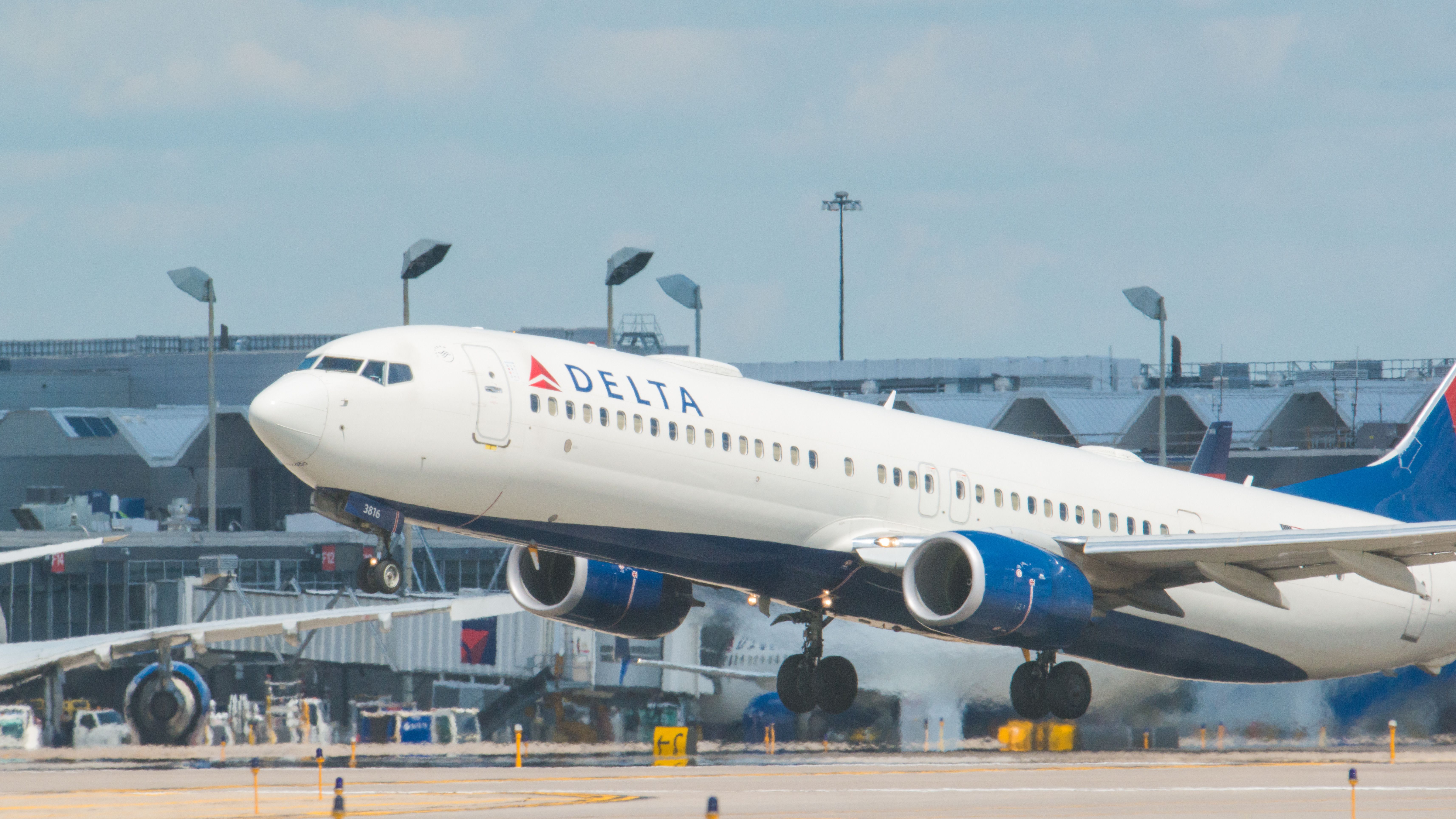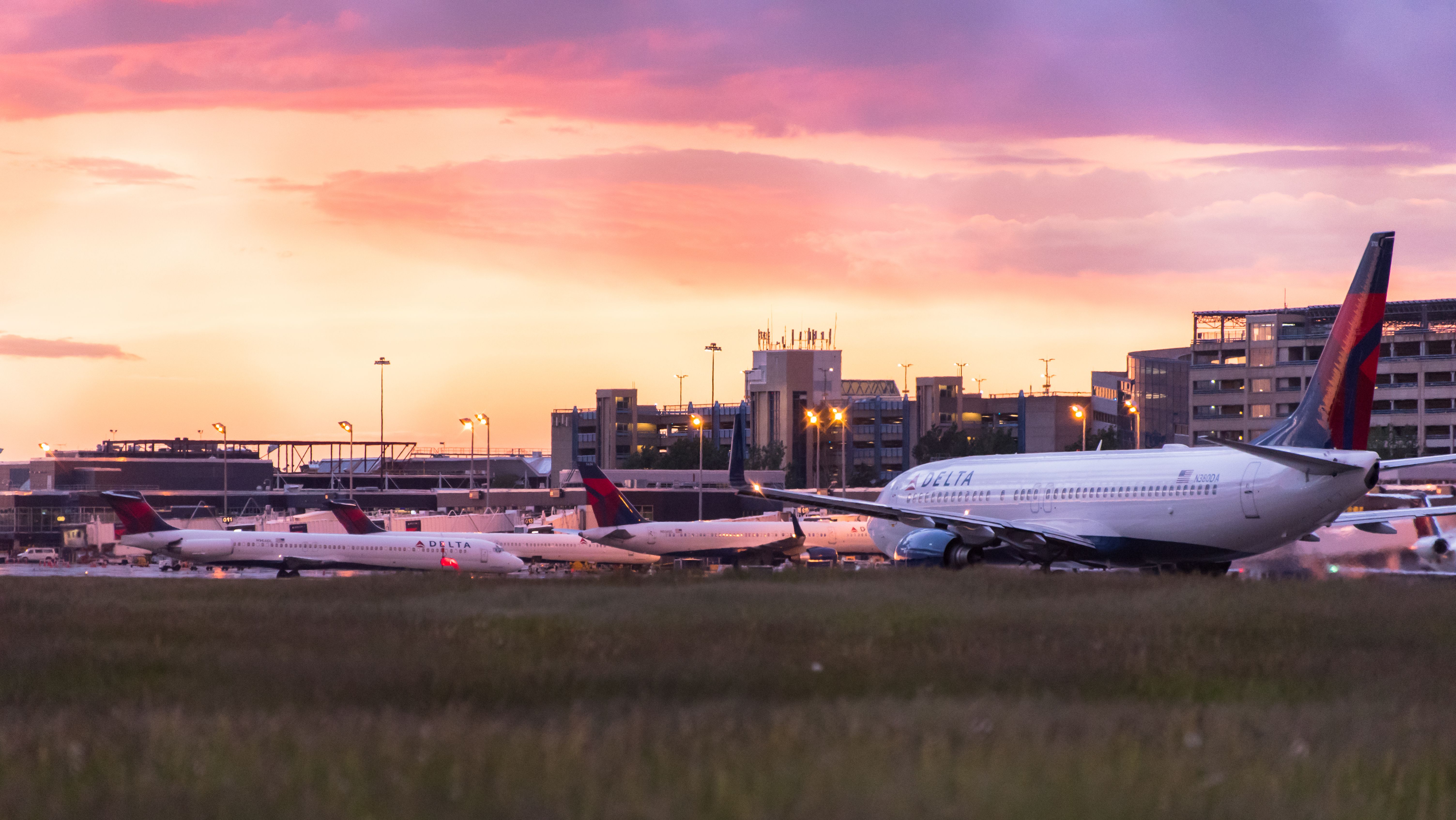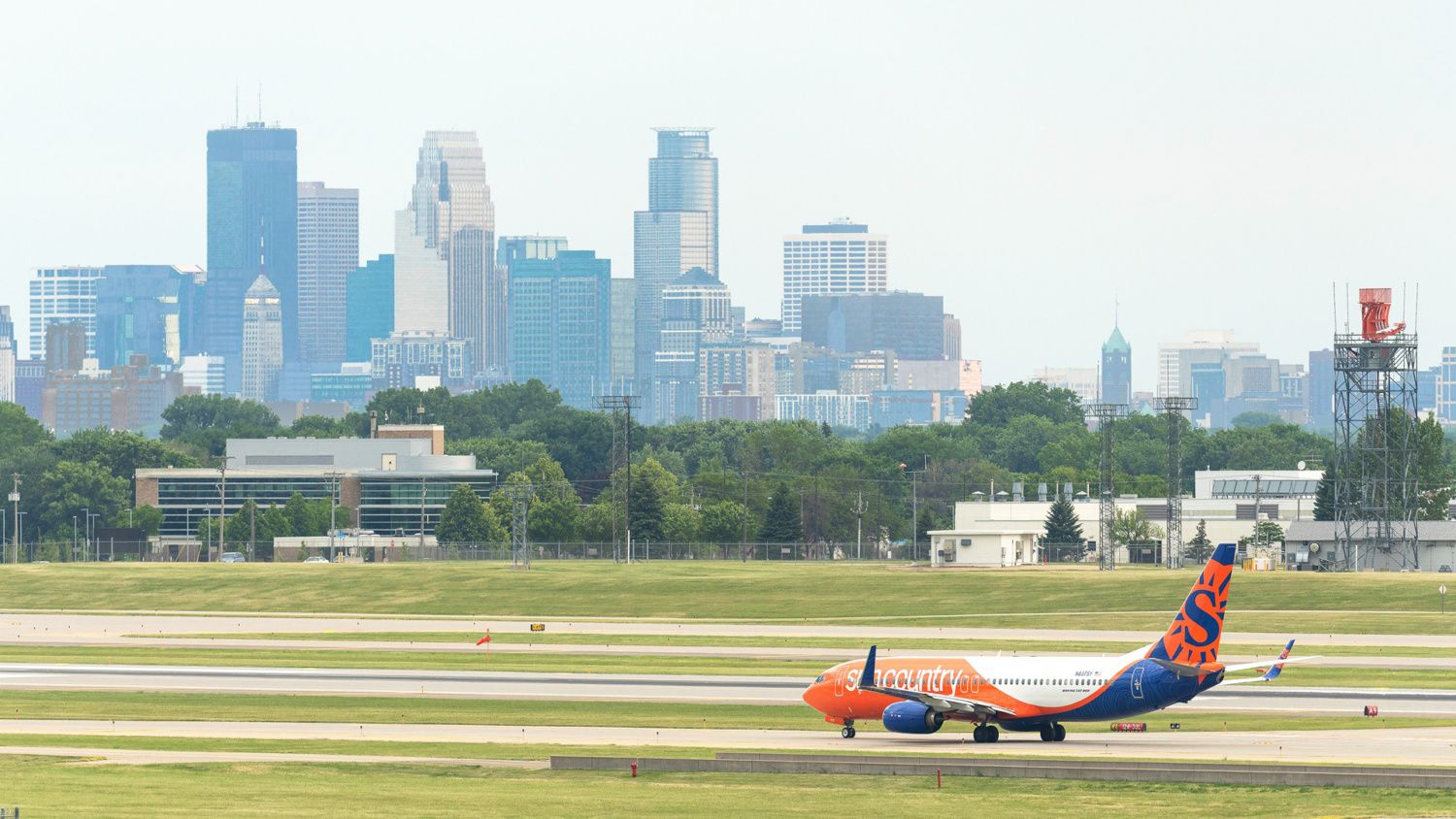Summary
- MSP makes history with the world’s first HydroStation at an airport.
- The HydroStation offers free filtered water and promotes sustainability by reducing waste.
- Partnership with Pentair aims to reduce waste and support sustainable practices.
With summers getting hotter and travelers increasingly advised to stay well hydrated, Minneapolis-St. Paul Airport has shown great initiative by introducing the world’s first refill stations of their kind at any airport worldwide. The new HydroStations will not only bring relief to weary travelers but are another step away from single-use plastics on the road to net-zero aviation by 2050.
A world first at MSP
The Metropolitan Airports Commission (MAC), the owners and operators of Minneapolis-St. Paul International Airport (MSP), announced Monday that it has partnered with Pentair to become the airport’s official water sponsor. The new partnership launched with the debut of ten new HOPE Hydration HydroStations in both MSP terminals, with MAC, saying they are “the first water refill stations of their kind at any airport worldwide.”
Photo: natmac stock | Shutterstock
Minneapolis-St. Paul handled 34.7 million passengers in 2023, a growth of 11% compared to the 31.2 million in 2022. Some of the airlines operating at MSP include Air Canada, Alaska, Delta, Spirit, Lufthansa, Southwest, United, WestJet, American, Aer Lingus, JetBlue, Allegiant and Condor.

Related
Lufthansa Touches Down In Minneapolis–St. Paul For The 1st Time With Service From Frankfurt
The five-time weekly service will be year-round.
The HydroStations provide free, chilled and filtered water in multiple concourses and other high-traffic areas of the airport. In keeping with the sustainability theme, they also provide an interactive experience about the positive environmental impact travelers can make by filling a reusable water bottle.
Photo: Deyan G. Georgiev | Shutterstock
The MAC strategy is guided by a commitment to meet 2030 sustainability goals, which includes diverting 75% of material from the waste stream by consuming less, recycling or composting what is used. MAC Chief Executive Officer Brian Ryks said yesterday:
“Our goal is to make it easy for passengers and our airport community to choose reusable options over single-use options. We’re excited about this strategic partnership because it shines a brighter spotlight on ways to reduce waste and support sustainable practices that go well beyond the airport.”
With 34.7 million total passengers passing through last year, MSP is the 19th busiest airport in North America, so plenty of prospective users will be lined up for the free, filtered water at the ten HydroStations. The HydroStations joined 80 existing water refill units at MSP, which were used seven million times in 2023, eliminating an estimated 600 pounds of waste from single-use water bottles daily.
Photo: Sun Country Airlines
The Hydrostations use integrated technology to track real-time impact data associated with eliminating single-use plastics, including plastic and carbon-emissions savings, which are displayed at each station. MSP has introduced a new strategic partnership of collaboration with businesses and community organizations to enhance the passenger experience and drive innovation, with Pentair being the first in that line.
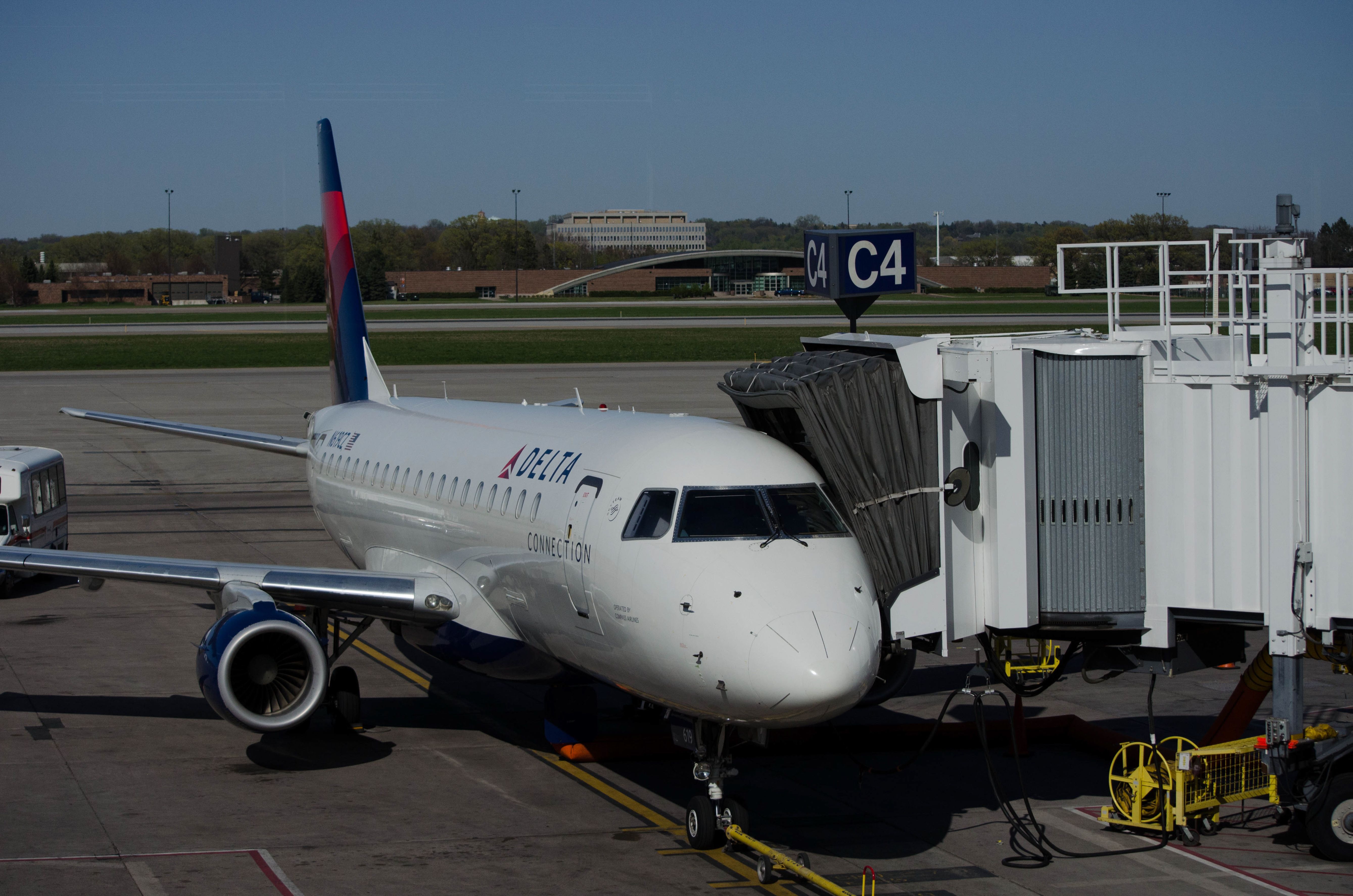
Related
Delta Air Lines Launches 2nd Phase Of Largest-Ever Renovation At Minneapolis Airport
The airline has partnered with the Metropolitan Airports Commission (MAC) for the $242 million project.
Pentair is focused on innovative, sustainable water solutions that “help our planet and people thrive.” Its Everpure filtration technology is a leader in the food service industry and is used in the HydroStations, which are now used at MSP. In 2023, Pentair generated approximately $4.1 billion in revenue from 10,500 employees serving customers in more than 150 countries.
HOPE is a tech-enabled company whose mission is to bring clean water without waste to the world via its HydroStations. HOPE wants to motivate new behaviors around water consumption, conservation and waste – including reducing the environmental impacts of plastic pollution.

